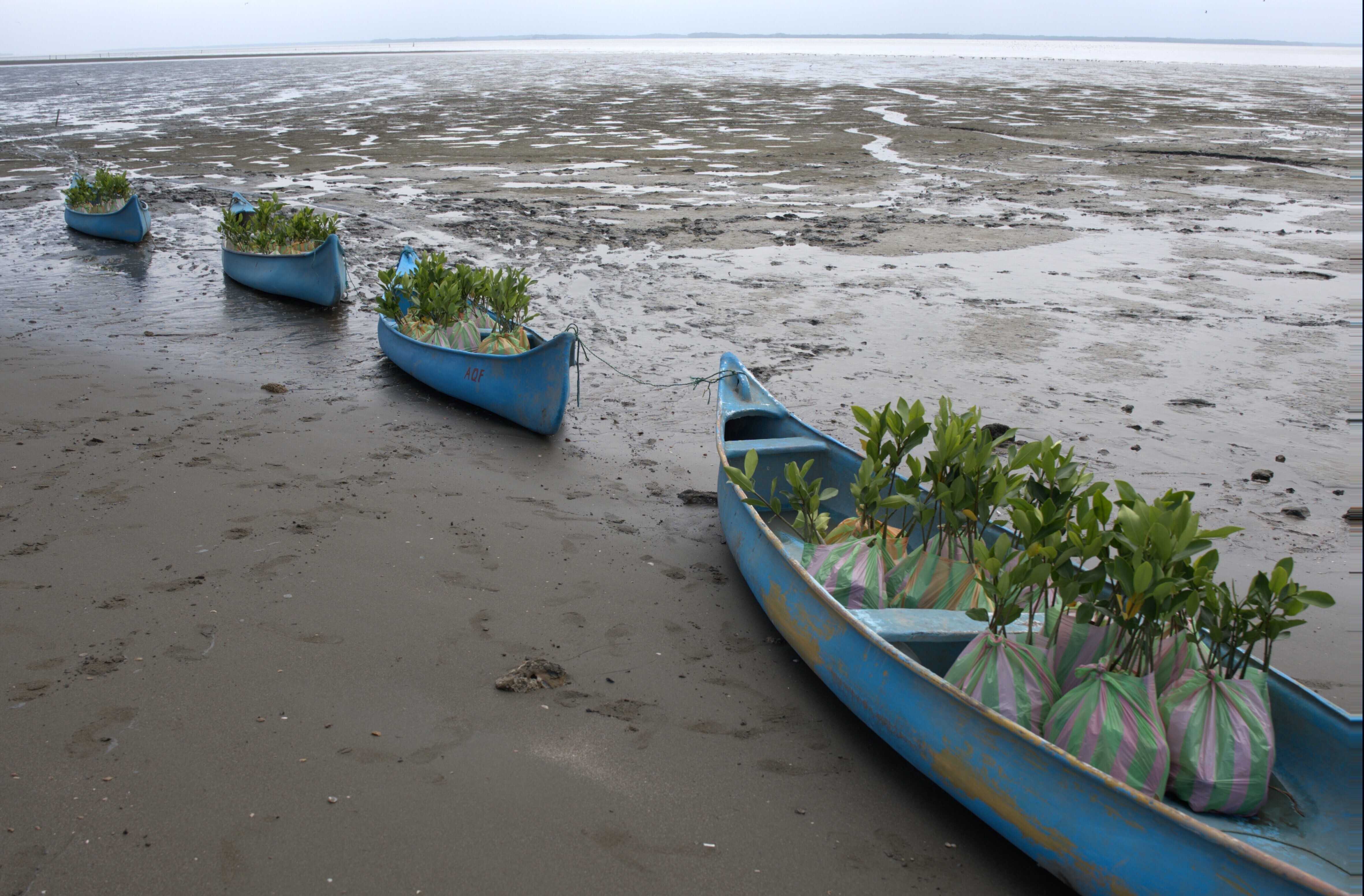Coral reefs, climate targets and Nobel prize winners: Everything to know about the environment this week

The world's coral reefs are facing an 'existential crisis', scientists said this week. Image: REUTERS/Nyimas Laula - RC26PN9T0YJ5
Listen to the article
- This weekly round-up brings you some of the key environment stories from the past seven days, to help keep you up to date.
- Top stories: World's coral faces 'existential crisis'; EU to back five-year climate targets at COP26; Trio of scientists win Physics Nobel Prize for climate work.
1. Environment stories from around the world
The world's coral reefs are facing an "existential crisis", scientists said in a report on Tuesday, as sea surface temperatures rise. The Global Coral Reef Monitoring Network showed that 14% of the world's coral was already lost between 2009 and 2018.
The fossil fuel industry benefits from subsidies of $11 million every minute, a new analysis by the International Monetary Fund has found.
Indonesian officials and researchers are working to preserve a small pocket of forest on the heavily populated island of Java as the habitat of the Javan gibbon, which they say is endangered by climate change and human encroachment.
Turkey's parliament ratified the Paris climate agreement on Wednesday, making it the last G20 country to do so, after holding off for years due to what it saw as injustices in its responsibilities as part of the agreement.
It came as the European Union agreed to back five-year climate targets at the COP26 climate change conference, where countries will attempt to finalize the rules needed to put the Paris Agreement into effect.
While the Russian government has drafted a new decarbonization strategy that sets a 2060 net zero emissions target and provides for more aggressive measures to tackle emissions than previously, the Kommersant newspaper reported on Wednesday.
What is the World Economic Forum doing to help companies reduce carbon emissions?
Getting the finance industry to think longer-term is critical to addressing the climate crisis, Inger Andersen, executive director of the United Nnations Environment Programme, said on Tuesday. She called for COP26 to harmonize rules for the world's carbon markets and set a price for carbon emissions that took their full environmental impact into account.
It came after Pope Francis and other religious leaders made a joint appeal on Monday for COP26 to offer concrete solutions to save the planet from "an unprecedented ecological crisis".
Global water resource management is "fragmented and inadequate" and countries should urgently adopt reforms to ramp up financing and boost cooperation on emergency warning systems ahead of a looming crisis, the UN weather agency said on Tuesday.
2. Climate change set to worsen resource degradation and conflict - report
A vicious cycle linking the depletion of natural resources and violent conflict might have gone past the point of no return in some parts of the world - with climate change likely to make the situation worse.
That's the conclusion of a new report released by the Institute for Economics and Peace (IEP) think-tank. Food insecurity, lack of water and the impact of natural disasters, combined with high population growth, are stoking conflict and displacing people in vulnerable areas, the IEP said.
"With tensions already escalating, it can only be expected that climate change will have an amplifying effect on many of these issues," the report said, with 30 'hotspot' countries, home to 1.26 billion people, identified.
3. Physics Nobel prize won for work on climate change
The Nobel Prize for Physics was won this week by a trio of scientists for their work in building knowledge and understanding of our changing climate.
Syukuro Manabe and Klaus Hasselmann won for work done modelling Earth's climate and reliably predicting global warming. Giorgio Parisi was recognised for his work in the 1980s discovering the 'hidden rules' of seemingly random movements and swirls in gases or liquirds.
Climate change is a 'huge threat' to humanity and it is very important for governments to take action as quickly as possible, Parisi told reporters on Tuesday. "I am very pleased to have this Nobel because it is a recognition of all the field I have been working in."
Don't miss any update on this topic
Create a free account and access your personalized content collection with our latest publications and analyses.
License and Republishing
World Economic Forum articles may be republished in accordance with the Creative Commons Attribution-NonCommercial-NoDerivatives 4.0 International Public License, and in accordance with our Terms of Use.
The views expressed in this article are those of the author alone and not the World Economic Forum.
Stay up to date:
SDG 13: Climate Action
Related topics:
Forum Stories newsletter
Bringing you weekly curated insights and analysis on the global issues that matter.







